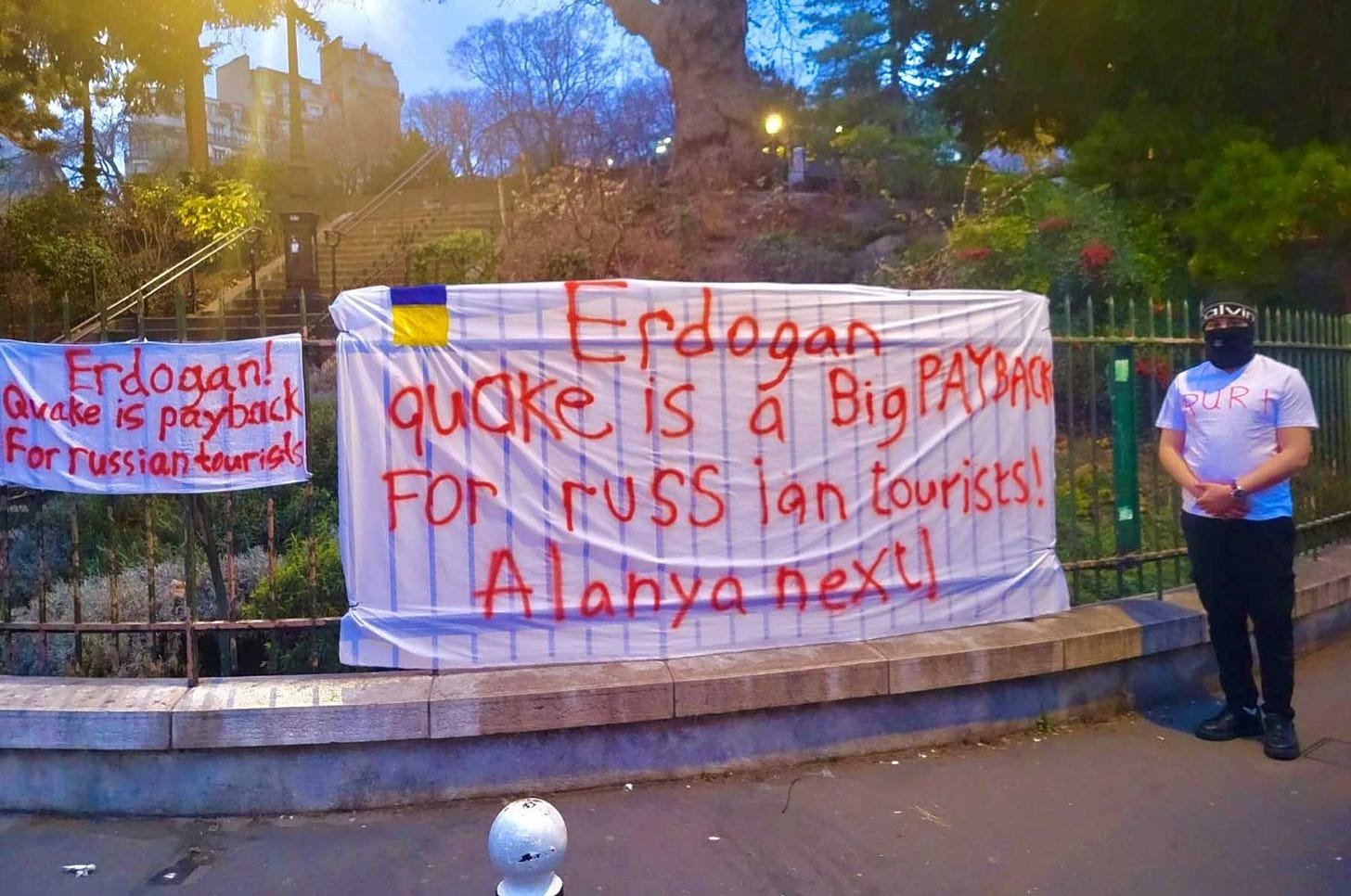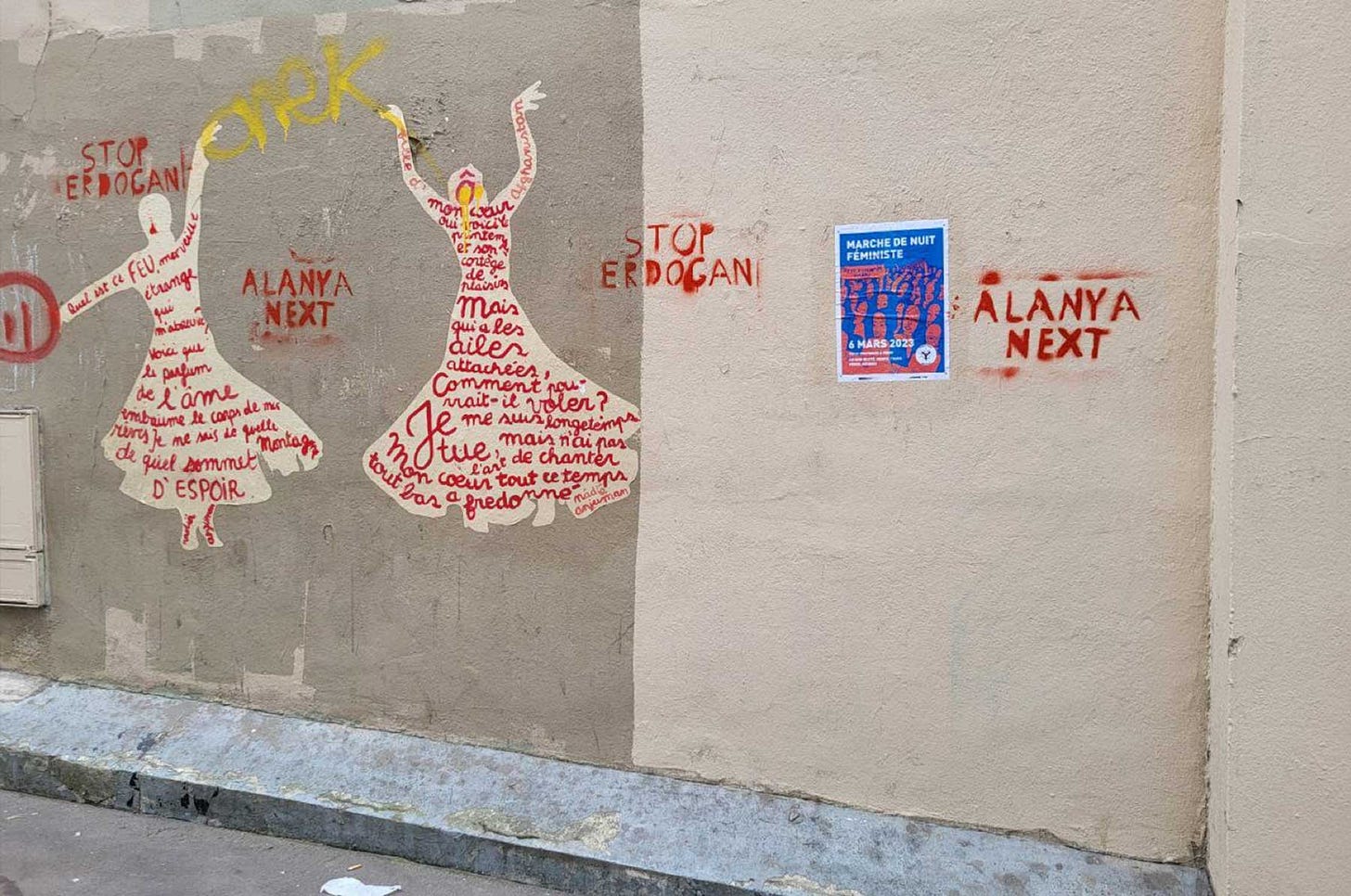Dossier Center: Undercover rally
Translation: Russian authorities organized protests in Europe to cause divisions between Turkey, the EU, and Ukraine
Dossier Center: May 7, 2023
Ilya Rozhdestvensky
After the start of a full-scale war in Ukraine, Sweden and Finland announced their desire to join NATO. And if in the case of Finland, the application was approved by all member countries of the alliance, but Sweden faced objections from Turkey. One of the reasons for the dissatisfaction from Ankara was the protest in Stockholm, where the Koran was burned.
The Russian authorities decided to take advantage of the tension and organize several more protest events in Europe in order to embroil Turkey and its NATO allies, as well as discredit Ukraine, the Dossier Center found out together with the publications DR, Expressen, Le Monde, NRK, Süddeutsche Zeitung, SVT, and Westdeutscher Rundfunk. The materials that the Dossier reveiwed were prepared in late January - early March 2023 in the administration of the President of Russia with the participation of intelligence officers.
The documents emphasize that Islamophobia is growing in Europe. The first example of such sentiments, which is given in one of the reports, is the action on January 21, 2023. Rasmus Paludan, leader of the Danish anti-Islamist Stram Kurs ("Hard Course") party, then burned the Koran near the Turkish embassy in Stockholm. The application for the event was paid for by journalist Chang Frick. He contributed 320 krona, explaining that if Paludan had transferred money from Denmark, the payment would have arrived late. Frick previously collaborated with the Russian media holding RT, but claims to have stopped working with the publication in 2014. After the burning of the Koran, President Recep Tayyip Erdogan said that Sweden should not count on Turkey's support for joining NATO. The second example is the action on January 22, when the leader of the anti-Islamic movement Pegida, Edwin Wagensveld, tore the Koran in front of the Dutch parliament building. He attributed his actions to freedom of expression.
It is not known whether the Kremlin was behind these actions. But shortly thereafter, Russian intelligence agencies proposed several similar actions against Turkey, such as wiping their feet on the country's flag and burning a portrait of Erdogan in the Netherlands. To do this, the plan proposed having five masked people, one of whom would film what was happening on the phone camera. The plan also included sending the video to the editorial offices of Turkish publications and having it published on social networks. Another possible scenario was to apply stenciled inscriptions with insults to Erdogan in Europe: in Paris, The Hague, Brussels, and Frankfurt. According to the plan of the special services, at night, dozens of migrants with stencils and spray paint cans were to make the maximum possible number of inscriptions in the most popular city places, and in the morning all European media would write about it.
At least one action in accordance with these plans actually took place. In early March, the presidential administration prepared a report on the event, which took place on March 5 in Paris at Place Saint-Pierre in Montmartre. At 8 am, five people posing as members of the Ukrainian community hung up an anti-Turkish banner reading “Erdogan, the earthquake is the payback for Russian tourists,” threw up their hands in a Nazi salute, and started shouting “Stop Erdogan!” at the camera. Thus, they were supposed to show the bad manners and ingratitude of Ukrainians against the background of the earthquake in Turkey, which claimed the lives of almost 60 thousand people.
The banner hung for about 40 minutes until the police arrived. In another area on the outskirts of the city, the Turkish flag was burned, and on the night before the protests, 105 stenciled inscriptions were applied throughout the capital: “Stop Islam,” “Stop Erdogan,” and “Alanya is next.”
They were left in crowded places: at bus stops and squares. Photos and videos of actions were published on social networks:
two videos - on YouTube ;
two videos - in TikTok ;
one post in Telegram;
over 200 posts on Facebook.
The total viewership of these publications was over 100,000 users, the document says. This figure is probably overstated: most of the posts received almost no reaction, the comments under the publications are mostly written by bots (accounts have empty profiles, their comments are incoherent and repeat each other), and videos on all platforms have gained about 15 thousand views.
The document contains links to some of the publications that are marked as "our accounts." After analyzing the profiles, Dossier and partners found out that since December 2022, ten anti-Ukrainian actions have been held in Paris, The Hague, Madrid, and Brussels. Often events took place in the midst of large demonstrations. For example, on February 11, there was a rally against pension reform in the Place de la République in Paris, with several men standing in the crowd holding a banner with the slogan "European Union and the United States, stop funding the war in Ukraine." The posters of the other actions had identical messages: they called on NATO to stop bombing Donetsk and send weapons to Ukraine. Some participants of the events managed to attend several actions.
One of the profiles that posted these protests, part of the campaign, belongs to a man named Aymen X. He posted stock photos at least five times in various groups. His account states that he lives in Algeria. But in one of the groups, he indicated his number, which begins with +7 - the international code of Russia. He also has a profile on the social network VKontakte, where he indicated that he lives in St. Petersburg. In St. Petersburg, he shoots videos for his TikTok.
Aymen was born in 2002, flew to Russia several times, as follows from the data of the Ministry of Internal Affairs, which the Dossier reviewed, and probably studied in St. Petersburg: in 2020 he was enrolled in the St. Petersburg Mining University. At the end of 2022, he joined several Facebook groups with job ads in Paris, Brussels, and Madrid and posted there: he promised 80-100 euros per day, for this money you had to take several photos.
Several more accounts that published photos from the shares belong to the Moroccan Mohamed M., who also studies in St. Petersburg. So, in the summer of 2022, he created a profile on YouTube, where videos from anti-Ukrainian actions in The Hague, Paris, Madrid, and Brussels were posted. Dossier and partners contacted Aymen and Mohamed, but they refused to answer substantive questions. Aymen accused journalists of slander, Mohamed claims that his Facebook profiles were hacked, but he did not talk about the details of the hack. Both threatened that they would complain about the publications to the Moroccan embassy in Russia. Aymen, purportedly Algerian, did not explain why he decided to apply to the Moroccan, and not the Algerian, diplomatic mission. Shortly after speaking with the journalists, their Facebook and YouTube accounts were deleted.
French counterintelligence told Le Monde journalists that its employees knew about the operation of the Russian special services. The department declined to comment further. A member of another European intelligence agency told reporters on condition of anonymity that Russian disinformation campaigns often consist of "using real tensions that, for example, already exist between Turkey" and EU countries in a hybrid war.
It is difficult to say how successful the actions carried out can be considered, but they definitely did not stop NATO expansion. Although Sweden has not yet received Turkey's support, Ankara is expected to approve Stockholm's bid after the Turkish presidential election in mid-May. The country's accession to NATO may take place at the July summit of the alliance in Vilnius.







